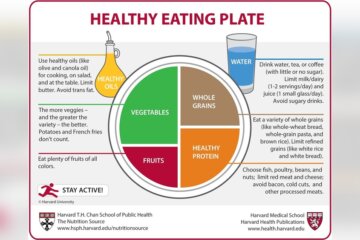**Best Time to Take Magnesium Supplements:** The best time to take magnesium supplements is 1-2 hours before bedtime. This helps improve sleep quality and relaxation.
Magnesium is a crucial mineral for many bodily functions, including muscle and nerve function, blood sugar control, and bone health. Taking magnesium supplements can support various health aspects, such as reducing muscle cramps and promoting better sleep. To maximize benefits, it is essential to know the optimal timing for consumption.
Taking magnesium 1-2 hours before bedtime can help relax muscles and calm the nervous system, leading to improved sleep quality. Always consult with a healthcare provider to determine the appropriate dosage and timing based on individual health needs.

Introduction To Magnesium Supplementation
Magnesium is a vital mineral that supports various body functions. From muscle relaxation to nerve function, magnesium plays a crucial role. Many people consider taking magnesium supplements to maintain their health.
But when is the best time to take these supplements? Let’s explore the key aspects of magnesium supplementation.
The Importance Of Magnesium
Magnesium is essential for over 300 enzymatic reactions. These reactions help with protein synthesis, muscle and nerve function, blood glucose control, and blood pressure regulation.
Magnesium also contributes to the structural development of bones. It is necessary for the synthesis of DNA and RNA. Without adequate magnesium, your body cannot function optimally.
Common Forms Of Supplements
Magnesium supplements come in various forms. Each form has its benefits. Here are some common types:
- Magnesium Citrate: Easily absorbed and often used for improving digestion.
- Magnesium Glycinate: Known for its high absorption rate and gentle effect on the stomach.
- Magnesium Oxide: Often used for its laxative properties, but has lower absorption.
- Magnesium Chloride: Highly bioavailable and supports detoxification.
- Magnesium Sulfate: Commonly known as Epsom salts, it is used for soaking baths.
Choosing the right type of magnesium supplement depends on your specific needs. Consult with a healthcare professional to find the best option for you.
Circadian Rhythms And Nutrient Absorption
Understanding the best time to take magnesium supplements can enhance their effectiveness. Our bodies follow a natural 24-hour cycle called the circadian rhythm. This rhythm affects many bodily functions, including nutrient absorption.
Body Clock Basics
The circadian rhythm, also known as the body clock, regulates sleep, hunger, and other essential functions. It responds to light and dark signals. During the day, energy levels peak, and at night, the body prepares for rest. Knowing these cycles can help you optimize your nutrient intake.
Magnesium And The Sleep-wake Cycle
Magnesium plays a crucial role in the sleep-wake cycle. It helps regulate melatonin, the hormone that controls sleep. Taking magnesium at night can support better sleep quality, as the body’s magnesium levels naturally dip in the evening.
Additionally, magnesium helps relax muscles and calm the mind, making it easier to fall and stay asleep. For these reasons, many people find that nighttime is the best time to take magnesium supplements.
| Time of Day | Body Function | Magnesium Role |
| Morning | High Energy Levels | Supports Nerve Function |
| Afternoon | Steady Energy | Maintains Muscle Function |
| Evening | Preparation for Sleep | Regulates Melatonin |
Digestive Considerations For Magnesium Uptake
Understanding the best time to take magnesium supplements involves knowing how your digestive system works. The body’s ability to absorb magnesium efficiently can vary based on several factors, including meal timing, digestive health, and the type of magnesium supplement taken.
Best Practices For Digestive Health
Maintaining good digestive health can significantly enhance magnesium absorption. Here are some best practices:
- Stay Hydrated: Drink plenty of water throughout the day.
- Eat Fiber-Rich Foods: Include fruits, vegetables, and whole grains in your diet.
- Avoid Processed Foods: These can hinder nutrient absorption.
- Exercise Regularly: Physical activity promotes a healthy digestive system.
Impact Of Meals On Supplement Absorption
The timing of your meals can affect how well your body absorbs magnesium supplements. Here are some key points to consider:
| Timing | Absorption Impact |
| With Meals | Taking magnesium with meals can enhance absorption. |
| On an Empty Stomach | It may cause digestive discomfort for some people. |
| Before Bed | It can help with relaxation and sleep quality. |
Taking magnesium with meals is often recommended for better absorption and to reduce the risk of stomach upset. However, evening supplementation may be more comfortable for those with sensitive stomachs.

Magnesium’s Role In Muscle And Nerve Function
Magnesium is crucial for both muscle and nerve function. This essential mineral supports muscle contractions and nerve signaling. Without adequate magnesium, muscles and nerves can’t function properly. Ensuring sufficient magnesium intake can prevent muscle cramps and spasms.
Magnesium also helps maintain the balance of electrolytes, which is vital for the proper functioning of muscles and nerves. A magnesium deficiency can lead to muscle weakness and nerve issues.
Optimal Timing For Athletes
Athletes need to time their magnesium intake correctly to ensure maximum performance and recovery. Taking magnesium 30 minutes before a workout can help with muscle relaxation and energy production.
Post-workout, magnesium aids in muscle repair. Consuming magnesium-rich foods or supplements after exercise can reduce muscle soreness and speed up recovery.
Morning or post-workout magnesium intake can be beneficial. This timing supports energy levels and muscle recovery throughout the day.
Magnesium For Relaxation And Sleep
Magnesium plays a key role in relaxation and sleep. It helps regulate neurotransmitters, which send signals to the brain. Taking magnesium in the evening can help relax muscles and nerves.
Magnesium also supports the production of melatonin, a hormone that regulates sleep-wake cycles. Taking magnesium supplements before bedtime can improve sleep quality.
Consuming magnesium-rich foods at dinner can also aid in better sleep. Foods like leafy greens, nuts, and seeds are excellent choices.
Interactions With Other Medications And Supplements
Understanding how magnesium supplements interact with other medications and supplements is crucial. This ensures you get the most benefit without adverse effects. Knowing these interactions can help you plan the best times to take your magnesium supplements.
Avoiding Conflict With Other Nutrients
Magnesium can interfere with the absorption of other nutrients. For example, taking magnesium with calcium or zinc supplements may reduce the absorption of these minerals. To maximize absorption, take these supplements at different times of the day.
Here’s a simple table to understand the timing:
| Supplement | Best Time to Take |
| Magnesium | After meals |
| Calcium | Before meals |
| Zinc | Before bed |
Medication Timings And Magnesium
Some medications can interact negatively with magnesium. Antibiotics like tetracycline and quinolones can become less effective if taken with magnesium. Blood pressure medications may also interact with magnesium, leading to potential side effects.
Follow these tips to avoid issues:
- Take antibiotics 2 hours before or 4 hours after magnesium.
- Consult your doctor about timing if on blood pressure meds.
Always check with your healthcare provider before adding magnesium to your routine. This ensures you avoid unwanted interactions and get the full benefit of your supplements.
Chronobiology And Timing Your Magnesium Intake
Chronobiology studies how our body’s natural rhythms affect health. Timing is crucial for magnesium supplements. Our body absorbs nutrients better at specific times. So, when is the best time to take magnesium?
Latest Research Findings
Recent studies show that our body clock influences how we process magnesium. Some researchers suggest taking magnesium in the evening. This is because magnesium can help relax muscles and improve sleep, which is essential for overall health.
Another study found that magnesium levels fluctuate throughout the day. Morning levels are often lower. Therefore, taking magnesium in the morning can help maintain stable levels, boost energy, and reduce fatigue.
Personalizing Your Magnesium Schedule
Everyone’s body is different. Some people may benefit from morning magnesium intake, while others might find the evening better.
Here are some tips to personalise your magnesium schedule:
- Assess Your Needs: Consider why you are taking magnesium. For sleep, please take it in the evening. For energy, the morning might be better.
- Track Your Symptoms: Keep a journal of how you feel after taking magnesium. Note any changes in sleep, energy, or mood.
- Consult a Doctor: Always consult with a healthcare provider. They can offer tailored advice based on your health needs.
Understanding your body’s rhythms and needs can help you optimize your magnesium intake and get the most benefit from your supplements.
Specific Health Conditions And Magnesium Timing
Understanding the best time to take magnesium supplements can help maximize their benefits. Different health conditions may require different timings for optimal absorption and effectiveness. This section explores the ideal timing for magnesium intake based on specific health needs.
Magnesium For Blood Pressure Management
Magnesium plays a crucial role in regulating blood pressure. For those managing hypertension, taking magnesium at night may be beneficial. Evening intake can help relax the blood vessels and improve blood flow during sleep. A relaxed body can lead to better blood pressure levels the next morning.
Bone Health And Magnesium Timing
Magnesium is vital for bone health. It works with calcium to build strong bones. For optimal bone health, it’s best to take magnesium with your meals. Mealtime intake helps with better absorption of both magnesium and calcium. Ensuring adequate magnesium levels can help reduce the risk of osteoporosis.
| Health Condition | Recommended Timing | Reason |
| Blood Pressure Management | Evening | Improves blood flow during sleep |
| Bone Health | With meals | Enhances absorption of calcium and magnesium |
Practical Tips For Magnesium Supplementation
Magnesium is essential for many body functions. Knowing the best way to take it can improve its benefits. Below are some practical tips to help you get the most out of your magnesium supplements.
Establishing A Routine
Consistency is key to effective magnesium supplementation. Establishing a routine ensures you get all the doses. Taking your magnesium supplement at the same time each day helps your body absorb it better.
Consider pairing your supplement with a daily habit. For example, take your magnesium with breakfast or before bed. This creates a natural reminder. Consistent timing can also help minimize any side effects.
Listening To Your Body’s Signals
Your body can tell you the best time to take magnesium. Please pay attention to how you feel after taking it. Some people might feel more energized, while others might feel relaxed and sleepy.
If you feel more awake, take your supplement in the morning. If it makes you sleepy, take it at night. Adjust your routine based on how your body responds. This ensures you get the maximum benefit.
| Time | Benefit |
| Morning | Increased energy and focus |
| Night | Improved sleep and relaxation |
Remember to always consult with a healthcare provider before starting any new supplement routine. This ensures safety and effectiveness tailored to your specific needs.

Frequently Asked Questions
Is It Better To Take Magnesium In The Morning Or At Night?
It’s best to take magnesium at night. It can help improve sleep quality and relax muscles.
What Medicine Should You Not Take With Magnesium?
Avoid taking magnesium with antibiotics like tetracyclines and quinolones, bisphosphonates, and certain heart medications. Consult your doctor.
Is It Okay To Take Magnesium Every Day?
Yes, taking magnesium daily is generally safe for most people. Consult your doctor for personalized advice and appropriate dosage.
Does Magnesium Make You Sleepy?
Yes, magnesium can help you feel sleepy. It supports muscle relaxation and calms the nervous system, promoting better sleep.
Conclusion
Finding the best time to take magnesium supplements can enhance their effectiveness. Consistency is key, whether morning or evening. Consult a healthcare provider for personalized advice. With the right timing, you can optimize your health and well-being. Incorporate magnesium into your daily routine for maximum benefits.

“As the voice behind Radiant Glow Health, we are dedicated to being your ultimate wellness and vitality companion. Our mission is to inspire and guide you on your journey to a healthier and more vibrant life. Join us as we explore holistic health practices and empower you to radiate wellness from within.”



